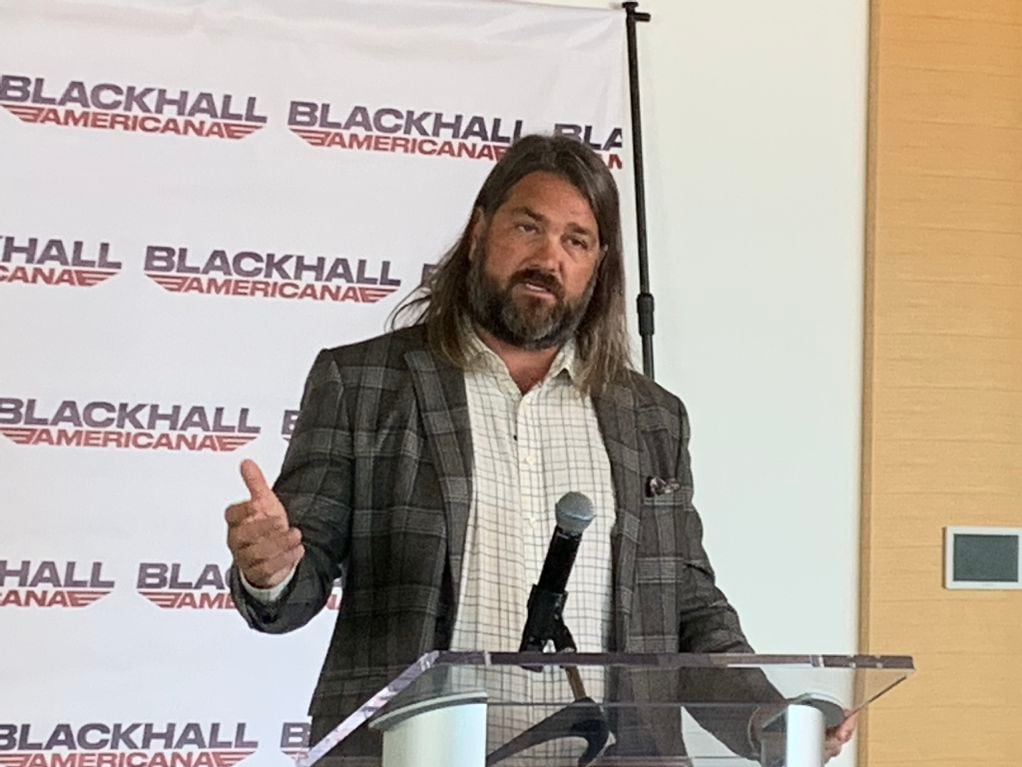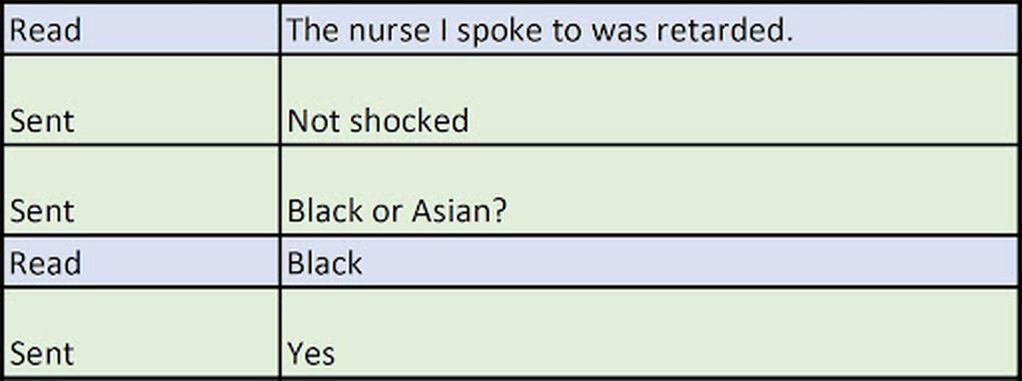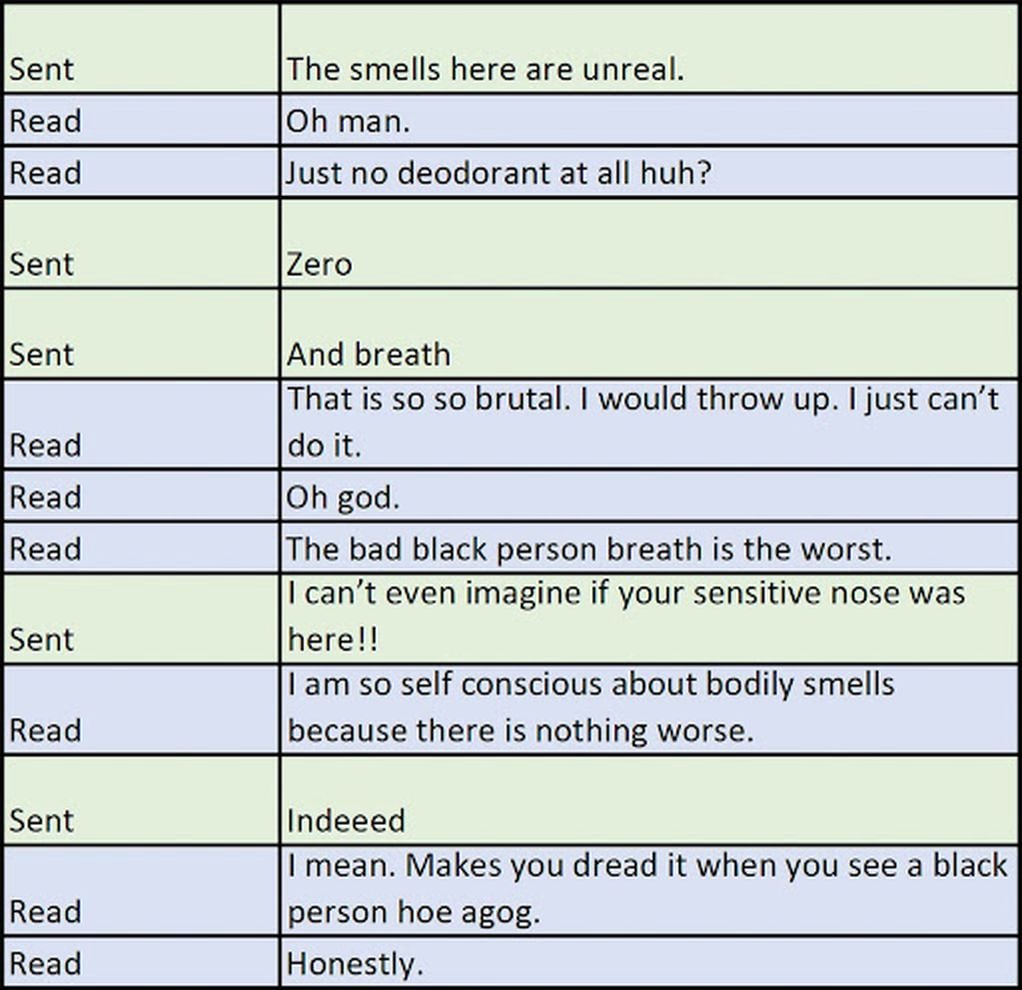Born2BKing
Veteran
A powerful Atlanta movie executive praised for his diversity efforts shared racist, antisemitic sentiments in texts

Long read but it'll show you how these powerful Hollywood cacs be thinking.
Ryan Millsap has built important relationships with Black leaders and Jewish colleagues. But his private communications, copies of which were filed in court, exhibit derogatory sentiments toward those communities.
The Atlanta Journal-Constitution reported this story in partnership with ProPublica, a nonprofit newsroom.
When Ryan Millsap arrived in Atlanta from California a decade ago, the real estate investor set his sights on becoming a major player in Georgia’s booming film industry. In just a few years he achieved that, opening a movie studio that attracted big-budget productions such as “Venom,” Marvel’s alien villain, and “Lovecraft Country,” HBO’s fictional drama centered on the racial terror of Jim Crow America.
As he rose to prominence, Millsap cultivated important relationships with Black leaders and Jewish colleagues and won accolades for his commitment to diversity. But allegations brought by his former attorney present a starkly different picture. In private conversations, court documents allege, Millsap expressed racist and antisemitic views.
Various filings in an ongoing legal fight show Millsap, who is white, making derogatory comments regarding race and ethnicity, including complaints about “(Expletive) Black People” and “nasty Jews.”
“Ryan’s public persona is different from who he is,” Millsap’s former attorney John Da Grosa Smith alleges in one filing, adding: “Ryan works hard to mislead and hide the truth. And he is very good at it.”
Smith submitted troves of text messages between Millsap and his former girlfriend as evidence in two separate cases in Fulton County Superior Court. The messages, reviewed by ProPublica and The Atlanta Journal-Constitution, represent a fraction of the evidence in a complex, yearslong dispute centered on compensation for the work Smith performed for Millsap.
In response to a request for an interview about the text messages and related cases, Millsap wrote that this “sounds like a strange situation,” asking “how this came up” and requesting to review the material. After ProPublica and the AJC provided the material cited in this story, he did not respond to multiple requests for comment.
Many of the text messages filed with the court were sent in 2019, an important year for Millsap. He was planning an expansion of his Blackhall Studios that would nearly triple its soundstage space. Instead, Millsap sold Blackhall, now called Shadowbox, for $120 million in 2021. In the following year, he announced plans to build a massive complex in Newton County, about 40 miles east of Atlanta.
Smith started working for Millsap in August 2019, representing the film executive and his companies in a lawsuit brought by a business associate who claimed a stake in Blackhall. In May 2020, Smith became Blackhall Real Estate’s chief legal counsel.
The relationship soured in early 2021. In the ensuing feud, Smith claimed that Millsap had promised him a third of his family company, as well as compensation for extra legal work. In a letter from his attorney, Smith demanded that Millsap pay him $24 million within four business days: “We, however, have no interest in harming Mr. Millsap or disrupting his deal, his impending marriage, his future deals, or anything else.”
In the arbitration proceeding that followed, Millsap’s attorneys described the letter as “extortionate” and claimed Smith was trying to “blow up” Millsap’s personal and business life and stall the sale of Blackhall Studios. “Smith breached the most sacred of bonds that exist between a lawyer and his or her clients: the duty of loyalty,” lawyers for Millsap later wrote.
In the same proceeding, Smith accused Millsap of firing him after Smith raised allegations of a hostile and discriminatory workplace, referencing Millsap’s text messages. Smith’s late father was Jewish.
In January 2023, an arbitrator sided with Millsap, ordering that Smith pay him and his companies $3.7 million for breach of contract and breach of fiduciary duty. The judge ruled that Smith’s conduct was “egregious and intended to inflict economic injury on his clients.”
Through his attorney, Smith declined to be interviewed. In response to a list of questions, he wrote, “This has been a tireless campaign of false narratives and retaliation against me for more than three years.” He claimed that his employment agreement with Millsap guaranteed him a cut of the profits he helped generate and that an expert estimated his share to be between $17 million and $39 million.
Even as Millsap won his legal fight with his former attorney, Smith has continued to press the court battle. In an April 2023 motion to vacate, Smith called the arbitration process a sham and the award a fraud, and he is now appealing a judge’s decision to uphold the award. In January, a lawyer for Smith filed hundreds of pages of Millsap’s texts in a separate legal dispute in which Millsap is not a party.
In a city with dominant Black representation and a significant Jewish population maintaining a positive relationship with these communities — or at least the appearance of one — is essential to doing business.
“Mr. Millsap knows,” Smith alleged in one filing, “these text messages are perilous for him.”
▪ ▪ ▪
On a Thursday night in January 2019, Millsap stood near the pulpit at Welcome Friend Baptist, a Black church 10 miles from downtown Atlanta in DeKalb County not far from the planned expansion of his movie studio.
Securing support from the community would be key in convincing the county commission to approve a land-swap deal that would be necessary for the expansion. Several commissioners saw the project, including Millsap’s promise to create thousands of jobs, as a way to revitalize the area.
Dozens of longtime residents, most of them Black, sat in the sanctuary’s colorful upholstered chairs. The attendees received information sheets on Blackhall’s plans, which cited $3.8 million in public improvements, including the creation of a public park. They asked about internship opportunities for their children and restaurants Millsap might help bring.
Millsap raised the possibility of a restaurant, one he said could offer healthy meals. Several older Black women in the church nodded in agreement and one clapped, Millsap’s pitch seemingly helping him appeal to those whose buy-in he needed.
Two months later, Millsap sent his then-girlfriend a text that Smith’s lawyers later alleged shows he “laments his political work with African Americans and his distaste for having to do it.”
In the text exchange, which was filed in court, Millsap wrote: “Well, it’s like me w black people in ATL!! Bahahahahaha!! Political nonsense everywhere!! … I’m so ready to be finished w that.”








 I hope this glacier ape loses everything
I hope this glacier ape loses everything How fragile are you that you fall to pieces whenever a racist step into the room?
How fragile are you that you fall to pieces whenever a racist step into the room?  You think a program's going to make their malicious intent go away? Discrimination laws no longer exists anymore because "DEI is gone
You think a program's going to make their malicious intent go away? Discrimination laws no longer exists anymore because "DEI is gone  " ? Can't even overcome that, but want to sit a the table like a boss.
" ? Can't even overcome that, but want to sit a the table like a boss. 

